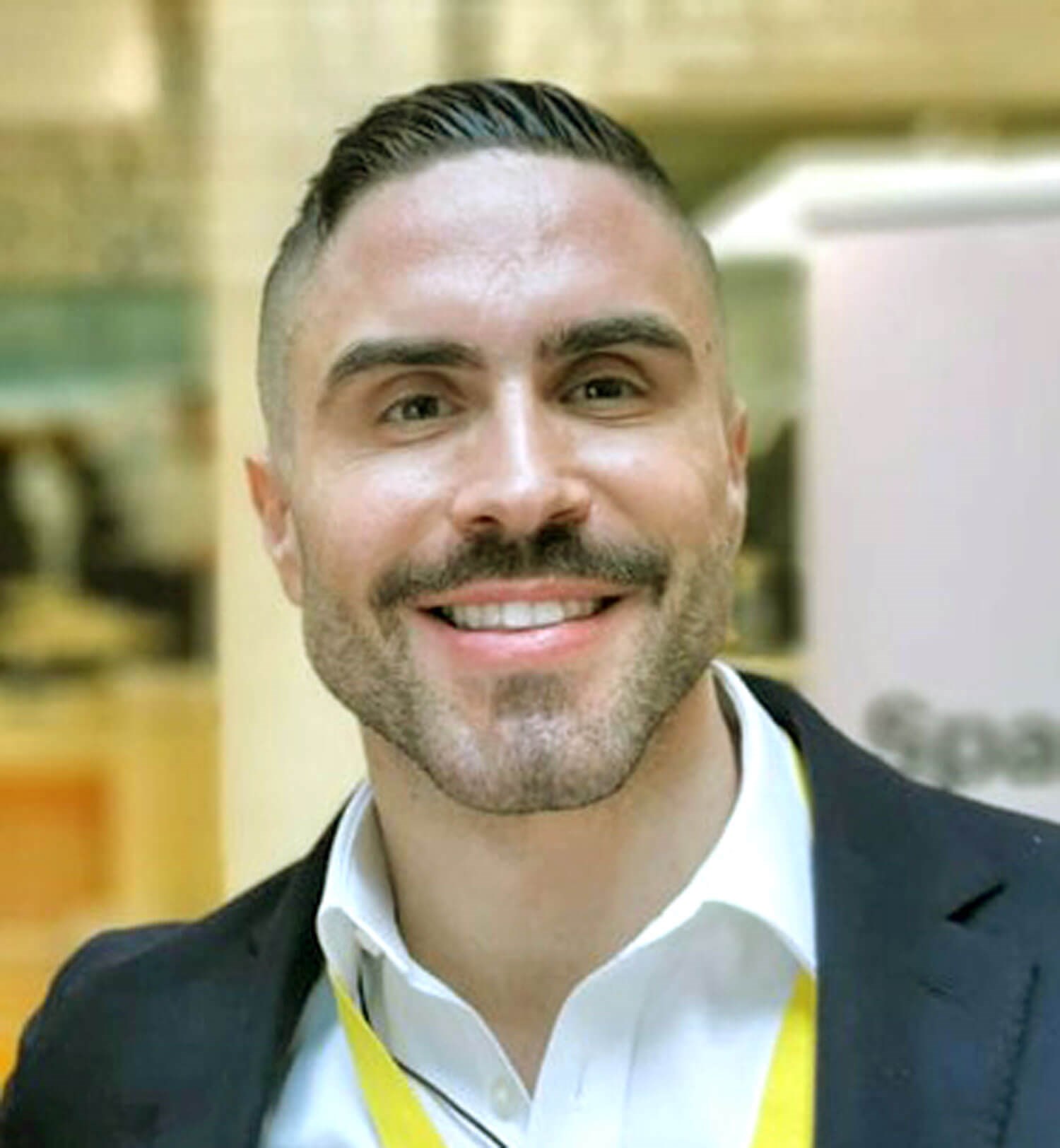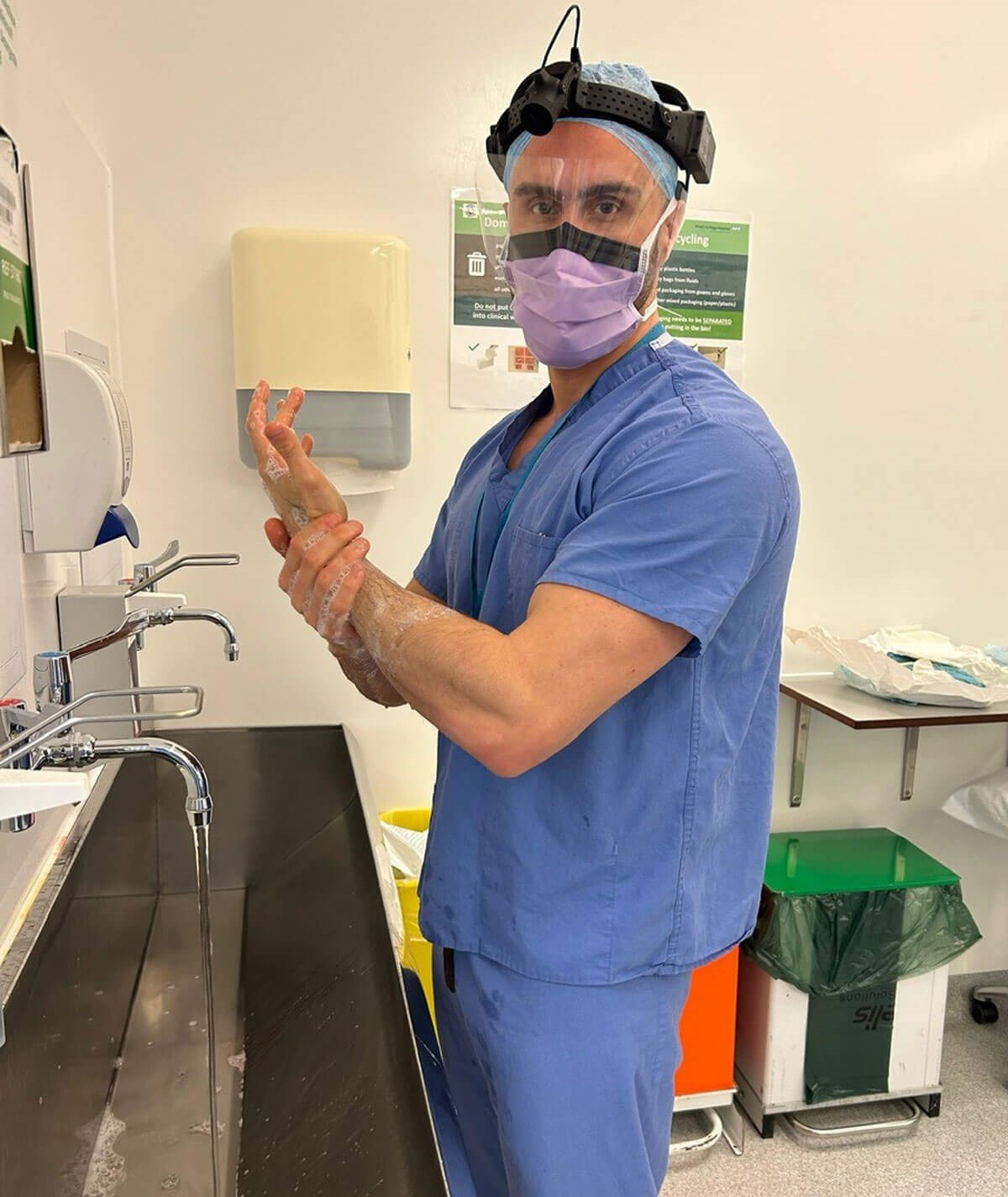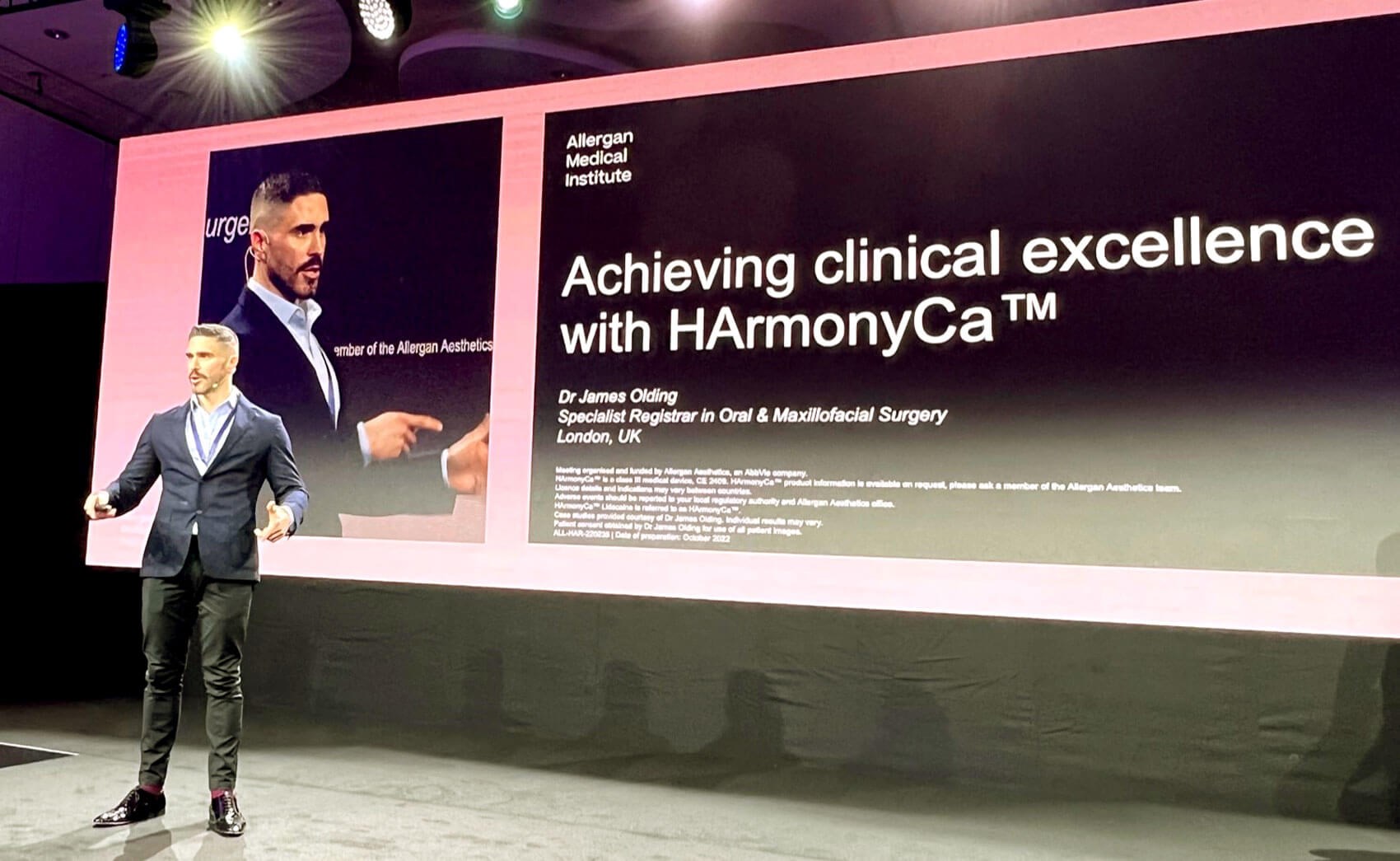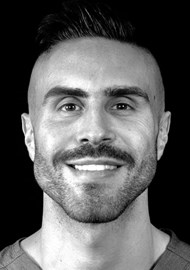- OPINION -
Oral & maxillofacial (OMF) surgery (OMFS) is a unique specialty requiring dual qualification in both medicine and dentistry and the scope of practice of an OMF surgeon in the UK is vast [1]. My early exposure to OMFS left me fascinated by the specialty, and even during my first degree (medicine) I was researching the steps required to become a ‘maxfax’ surgeon.

Fast forward 17 years and I am now an ST4, based in London. I work in a busy, level 3 trauma centre and I am exposed to a huge variety of clinical presentations requiring expert OMFS management. Specialty training in OMFS has, so far, been both challenging and hugely fulfilling, with the well-established specialist training pathways and structures serving to ensure safe patient care, while promoting the development of trainee surgeons towards becoming consultants.
The path to becoming an OMFS consultant may be viewed as more complex than in other specialties, with the key factor being the need for dual qualification. My own route to becoming a registrar in OMFS is made even more complex in that my journey is closely linked to my work in the field of non-surgical facial aesthetics, as both a practitioner, trainer and international key opinion leader (KOL).
A key focus of my work in non-surgical aesthetics has always been promoting and introducing regulated, academically accredited training pathways for those wishing to enter the field [2]. Too often we see the consequences of a poorly regulated aesthetics industry, with patients attending NHS clinics and emergency departments following non-surgical aesthetics treatments. I feel strongly about pushing for stricter regulation, more formal training pathways and better patient education around facial aesthetics treatments, and I fervently believe that OMF surgeons ought to be leading this discussion.
Journey into OMFS
I attended a state comprehensive school in South London, and I was the only student in my school year to go on to study medicine. While studying medicine at Bristol, I had the opportunity to participate in the ERASMUS scheme, where I studied six months of my third year of medicine in Granada, Spain. I was attached to a maxillofacial surgeon for some of this time, and what I saw left me completely in awe of the specialty. Returning to the UK, I became involved with projects and undertook electives and shadowing in OMFS, and my career path was set.
A few years into my pre-specialty training as a doctor, the financial and personal barriers to returning to full-time studies as a dental student were looming large, and I explored other career paths ranging from orthopaedics to radiology. Outside of the NHS setting, I also undertook training in non-surgical aesthetics, and I found a great sense of fulfilment and enjoyment in the technical and business aspects of this area.
As a self-funding individual living in London, I would have unlikely been able to undertake three years of full-time studies without my work in non-surgical aesthetics. On the back of £60,000 of medical school debt, I faced the prospect of funding my studies through either personal income or obtaining another £40,000+ of loans, all accruing interest at a rate six times that of my initial medical school loan.
"I believe that there is a huge amount to be learnt by surgeons and non-surgeons sharing knowledge and experience"
Everyone has a personal story of how they reached a certain point, and this is a crucial part of mine that cannot be overstated. My non-surgical aesthetics practice was a fundamental bridge between the state comprehensive school leaver who was alone in obtaining a medical school place, to the future NHS oral & maxillofacial surgeon I am today. I strongly believe that the efforts to further diversify and strengthen our specialty lie in embracing non-traditional routes, appreciating different perspectives, and better considering individual backgrounds and challenges.
Second degree: dentistry
Studying dentistry was necessary for my career progression in OMFS, and I was fortunate enough to gain a place on the UK’s only three-year dental course for aspirant OMF surgeons at King’s College London. More than just providing me with fundamental skills for my surgical career, it gave me an unexpected insight into the future of non-surgical aesthetics. I would be approached by dental students asking to shadow my non-surgical practice, and increasingly students were seeking information on how to train in the most robust, ethical and safe way. Though I was surrounded by junior dentists, the sentiments were similar among medical students, too, and presentations that I gave about both OMFS and aesthetics while at King’s were attended by both groups – the questions and aspirations were largely comparable.
Based on this experience, I moved to create the first and only mentorship scheme of its kind for soon-to-graduate and recently graduated medics, dentists and nurses called the Junior Trainee Mentorship Scheme (JTMS). Starting with 25 mentees across the UK in 2021, three years later we now currently have 80 mentees across four different countries in Europe. The scheme has safety, training information, anatomy and regulation as its core pillars, and 12 webinars over the year are complemented with support to create and present a research project at a national conference, as well as a one-day clinical observation day.
Non-surgical aesthetics as an OMFS SpR
By the time I started my ST3 post in OMFS, I had set up an OFQUAL-regulated postgraduate diploma (Level 7) in aesthetics and an undergraduate mentorship scheme (the JTMS) through my training academy, Interface Aesthetics [3]. Additionally, I had been invited to join the educational faculty for Allergan Medical Institute (AMI) as a KOL, and I had undertaken international trainings and presentations in aesthetics, including the area of training pathway reform and clinical case studies.
This growing aspect of my career certainly required careful navigation, especially given the challenges of having had one-and-a-half years of my dental studies impacted by COVID-19, and the well-recognised effect of the pandemic on surgical training and elective operating opportunities. Essentially, I was a full-time surgical registrar in the NHS, alongside being a business owner leading a team of 15 and an international KOL with speaking and training commitments.

Preparing for theatre.

Presenting internationally for Allergan.
The OMFS specialist training pathway provided important checks and balances, and my business or aesthetics training activities could rightly never be seen to impede or take priority over my OMFS training. Finding the right balance probably took the entire length of my ST3 year and involved many factors, including staff recruitment into my business, open and honest dialogue with my consultant trainers and supervisors, support from registrar colleagues and total transparency about my work and goals outside my NHS training. Most importantly, having an unconditionally supportive partner is what continues to make all the metaphorical plate spinning both possible and enjoyable. Having successfully found a steady equilibrium does not make the multiple pursuits less exhausting, but it does mean that I can enjoy each aspect of my career more fully.
Developing the surgical / non-surgical interface
I believe that there is a huge amount to be learnt by surgeons and non-surgeons sharing knowledge and experience. While at times challenging, I feel privileged to occupy a space within both camps. I find great strength in the contrasts that many would perceive as conflicting or contradictory. I am reassured by the rigour and discipline of my surgical specialist training, where every operating list represents the best dissection training anyone could hope for in the non-surgical sphere. I am lucky to be trained by genuine experts in head and neck surgery and facial anatomy. Nothing keeps my feet as firmly on the ground as when I am being questioned and challenged in the operating theatre about a surgical plan or technical approach. Surgery provides this grounding, and the constant push for mastery of the face, head and neck at an anatomical, clinical and diagnostic level.
Non-surgical aesthetics also inspires me each and every day, and I have been privileged to work alongside some of world’s leading injectors and innovators through my work as an international KOL with the AMI. Beyond this, non-surgical aesthetics has allowed me to explore and develop areas I was previously ignorant of: managing a large team, monitoring staff performance, building and growing multiple businesses, presenting to peers on an international stage (including in my non-native second and third languages of Portuguese and Spanish) and even becoming a principal investigator in a phase 3 randomised controlled trial using botulinum toxin for masseteric hypertrophy. The ability to create new schemes and events, be involved in training innovation, and design learning resources, has engaged my creative side in a way that gives me great fulfilment professionally.
One of the most exciting projects of the last 12 months has been the creation and delivery of a one-day educational congress called FACExpo, which took place for the first time in November 2022 [4]. We welcomed 250 junior medics and dentists (both undergraduate and recent postgraduate) to the Royal Society of Medicine for an educational programme bridging surgical and non-surgical, regulation, training and clinical practice. The day was notable for the inclusion of many OMFS consultants and junior trainees as speakers, and huge interest was generated for both OMFS and non-surgical aesthetics. The planning for FACExpo 2023 is already well underway and I am lucky to be working with a team of motivated and talented undergraduate and recently graduated medics and dentists to ensure we add value, meet learning needs and, above all, get the upcoming generation of health care professionals (HCPs) well and truly engaged in both OMFS and non-surgical aesthetics.
Working to live in surgery and aesthetics
Recent years have provided opportunities in both maxillofacial surgery and aesthetics that I am immensely grateful for. It is hard to say no to a new project, endeavour or patient when every aspect of my chosen careers offers me so much fulfilment, growth and enjoyment, but finding that balance is the ultimate challenge, and it isn’t hard to think of colleagues or friends with personal lives that have been affected adversely by a career in surgery, and sadly the same can surely be said about non-surgical aesthetics.
Having a supportive family and partner, fostering friendships that have accompanied the journey from its very beginning, and in my specific case, daily practise of the ultimate stress-reduction mechanism known to humanity (lifting weights in the gym!) are my fundamental ingredients to continued balance, health and wellbeing. Striving to uphold the balance never ends, and the struggle starts again with every 06:00 alarm before a busy operating list, every interrupted sleep when on call and every social engagement missed to cover a sick colleague and ensure a safe service for patients. These are recognised occupational hazards of my chosen career, and I’m lucky to have the support to continue to face these with happiness and health, two attributes for which no amount of career success or fulfilment can compensate for.
References
1. Specialty Training Health Education England NHS. Person Specification 2023: Oral and Maxillo Facial Surgery – ST3.
https://specialtytraining.hee.nhs.uk/
portals/1/Content/Person%20Specifications/
Oral%20and%20Maxillofacial%20Surgery/
ORAL%20AND%20MAXILLO%20
FACIAL%20SURGERY-ST3-2023.pdf
2. Olding J, Fan K. A better way to structure training in non-surgical aesthetics: An OMFS-led training scheme. British Journal of Oral and Maxillofacial Surgery 2022;60(1).
3. Interface Aesthetics. Level 7 Diploma in Injectables.
https://interfaceaesthetics.co.uk/
courses/level-7-aesthetics-training/
4. Brand new FACExpo conference held for aesthetic beginners.
https://aestheticsjournal.com/news/
brand-new-facexpo-conference
-held-for-aesthetic-beginners.
Aesthetics Journal.
[All links accessed April 2023]
COMMENTS ARE WELCOME









